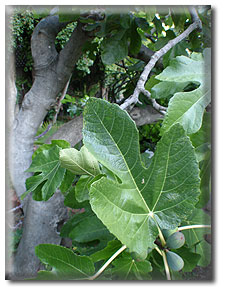Trees belong in your buying equation
Originally appeared in Bay Area News Group publications on September 4, 2009
Understandably, most home buyers are happy to be surrounded by trees, one of nature’s greatest gifts. They are magnificent, awe-inspiring creations. Oak, madrone, sycamore and redwood are all incredible. Some, like cedar, can be clipped low to form a hedge as a lovely border. Fruit trees furnish us healthful treats. In our area these include plum, pear, apple, lemon, lime and fig, to name a few.

Trees can enhance the health, safety and property values of neighborhoods. Climate change has heightened our attention to trees’ capacity for removing carbon from the atmosphere.
In spite of all their great attributes, trees can also cause problems. Knowing from experience that buyers rarely consider the impact of trees in their purchasing decisions, I have collaborated with Martin Arnest, a well respected Certified Arborist from Montclair, to highlight both the positive and negative effects of trees on residential real estate.
Trees create shade
On a hot, summer day, such as we had recently, sitting under a shady tree is pleasant and relaxing. They are our natural air conditioners.
From another perspective, some houses are dark not so much because of a northern orientation, but because of trees positioned in such a way that they block light. This unwanted shade may squash a sale. If the offending trees are on a neighbor’s lot, you may not be able to have the branches cut back and/or thinned out to lessen the gloom. Skylights could help, but that entails additional expense.
Some are dangerous
Certain trees, such as Monterey Pines and Blue Gum Eucalyptus may be dangerous. Blackwood Acacias are also in this category.
Trees that have become overgrown and gangly can endanger the homes below. A few years ago, an Oakland homeowner noticed that the huge branches of his next door neighbor’s 80 foot tall Monterey Pine, located uphill from his property, were almost over his roof. This pine was leaning precipitously toward his house.
The tree was discovered to be severely diseased and could have toppled over, perhaps in a storm, within the next few years. Given the size and lean of the tree, this was an exceptionally dangerous situation. After many months of sometimes tense negotiations, his neighbor finally agreed to cut down the tree. In this instance, the lowest bid for removal was $10,000.
Tree maintenance
Regular maintenance keeps trees beautiful to look at and safe to be around. New homeowners are often unaware of the amount of skilled work that goes into maintaining trees of all sizes, so it is a good idea to determine the cost of maintenance.
Trees that are allowed to get unwieldy can become a nuisance. Being proactive about tree care can be cost effective and might avoid the hassle of tree removal or preempt the necessity of making drastic cuts to trees that could compromise their health, safety or esthetic appeal. Failure to take responsibility for your trees, if it leads to damage, injury, or death, could result in a hefty judgment against you which may or may not be covered by insurance.
Blocking the view
Many homes in the hills have views of trees, the Bay, or both. The City of Oakland has a “View Ordinance,” ostensibly to preserve the Bay view of homes that have one. There are legal questions regarding the applicability and effectiveness of this ordinance. Regardless, those with views wish to maintain them and those who live lower on the hill may be resistant to topping their trees.
Be aware, as a buyer or seller, that you could get involved in a dispute over a Bay view. If you purchase a property with such a view, make sure to take photographs at the time you buy.
Naturally, trees grow. Some years from now, today’s lovely view could be partially or fully obstructed. As this is a potential legal issue, you might check with the City of Oakland and/or an attorney who handles these types of situations.
Roots damage infrastructure
Consider the potential headaches of tree root damage to sidewalks, sewer lines, driveways and foundations. This could be from trees on the property you are purchasing or on a neighbor’s parcel. Some trees have destructive roots that range quite far from the trunk. A competent home inspector can point this out to you and may recommend inspection by a Certified Arborist.
When my wife and I bought our current home, it had a Monterey Pine right next to the garage foundation. Whoever planted it did not picture the damage it could do, or the negative consequences of having to constantly clean pine needles and branches from the garage roof and gutters. Unfortunately, our only alternative was to remove it.
Consultation with an arborist
Many of the majestic trees in the Bay Area are nearing the end of their prime, even if they appear vigorous now. Others are just giant weeds, waiting to wreak havoc in the next round of winter storms. If there are substantial trees on or near the property, it is a good idea to contact an I.S.A. International Society of Arboriculture Certified Arborist for an assessment. Ask a gardener, neighbor or Realtor for a referral or Google “Certified Arborist” for your location.
Final Thoughts
Clearly, you would not want to be the buyer who regrets a failure to recognize the impact of trees on safety and daily enjoyment of your property. Although trees are an exquisite part of our daily lives, you need to be aware of difficulties they sometimes cause. Better to think about this before you buy.
Related Articles:
Eucalyptus and Monterey Pines Present Problems